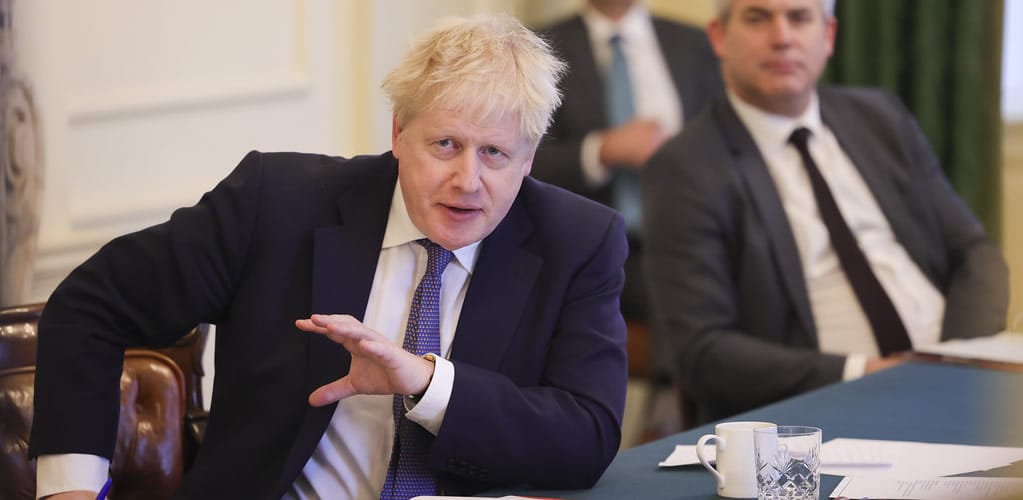You don’t end a pandemic simply by declaring it over.
The views of experts and health professionals on the Omicron variant, the government’s handling of the situation, and the lack of mitigations in schools as the NHS struggles to cope with the crisis...

The views of experts and health professionals on the Omicron variant, the government’s handling of the situation, and the lack of mitigations in schools as the NHS struggles to cope with the crisis...
First published in January 2022.
WHAT THE EXPERTS SAY...
... on the Omicron variant.
Tedros Adhanom Ghebreyesus, Director-General of the World Health Organization:
“Omicron is spreading at a rate we have not seen with any previous variant. I need to be very clear: vaccines alone will not get any country out of this crisis.
“It’s not vaccines instead of masks, distancing, ventilation or hand hygiene. Do it all. Do it consistently. Do it well.”
“While Omicron does appear to be less severe compared to Delta, especially in those vaccinated, it does not mean it should be categorised as mild.
“Just like previous variants, Omicron is hospitalising people and it is killing people.
“Booster after booster in a small number of countries will not end a pandemic while billions remain completely unprotected.”
Follow Dr Tedros Adhanom Ghebreyesus
Dr Maria Van Kerkhove, Infectious Disease Epidemiologist, COVID-19 Technical Lead, World Health Organization:
“Oversimplified narratives can be dangerous. While we see a lower risk of hospitalisation compared to Delta, to suggest that Omicron is “just a mild” disease is dangerous.
“Case numbers are astounding... even with lower risk, we will see hospitals overwhelmed. Please be careful.”
Dr Michael Mina, Epidemiologist, Immunologist, Physician, Chief Medical Officer at eMed:
“Infections in the vaccinated doesn’t mean that vaccines aren’t working. Symptomatic infections in the vaccinated doesn’t mean that vaccines aren’t working. Infections after being infected doesn’t mean COVID-19 doesn’t offer immunity. Immunity is working for COVID! But it takes experience to build layered protective responses.
“We are getting through this pandemic. We are. Really. But just as a baby needs to grow and live, and get a series of vaccines and get infections before a few years into life when childhood mortality rates greatly decline, so too are we growing our way out of this virus’ grip.
“It is, however, very painful because adults especially do not have the tolerance to deal with new infections that they have no pre-existing immunity for. Further, we are trying to do it with a virus that too is just learning to live in and amongst humans and is still, itself, adapting.”
Professor Graham Medley, Professor of Infectious Disease Modelling, London School of Hygiene and Tropical Medicine, Chair of the SPI-M sub-group of SAGE:
“I think that at the moment the testing capacity issues, and the Christmas and the new year, mean that we can’t really rely on cases to tell us what’s going to happen exactly.
“At the moment we are seeing a relatively high number of admissions, how long that continues, whether that goes up or goes down, I think is unknown at the moment.
“I think that (the transition from COVID being an emergency) is absolutely true. It can’t be an emergency forever. So at some point, it will have to stop being an emergency. But that is likely to be a phase-out rather than an active point in time where somebody can declare the epidemic over.
“It’s going to fade out and disappear much more slowly than that, I think.”
Follow Professor Graham Medley
Get TODAY IN COVID in your inbox every day to better understand what happens next with the pandemic.
Become a PMP member todayWHAT THE EXPERTS SAY...
... on the government’s management of the Omicron crisis.
Dr Nisreen Alwan, Associate Professor in Public Health, University of Southampton. Public Health. Epidemiology:
“Let’s do some renaming please, folks. Masks, ventilation, testing are PROTECTIONS not restrictions. Just like loads of other behaviours and rules we stick to like seatbelts, speed limits, no drink driving, smoking bans, taxing pollution etc. I protect you and you protect me.”
Dr Rachel Clarke, NHS Palliative Care Doctor:
“We need to be clear what “riding it out” actually means.
Not everyone will. Some will die from Covid – who needn’t have.
Some will die from NHS overcrowding/mistakes/lack of bed/delays – who needn’t have.
Avoidable deaths. Lives lost.
That is what the PM is talking about.”
Professor Christina Pagel, Director of University College London’s clinical operational research unit, member of Independent Sage:
“So let’s see. Omicron is just a cold and the pandemic is almost over, but the only fair comparison to how bad things are is a year ago, with a different variant and when hardly anyone was vaccinated?
“And even so we are not that far off the first wave’s peak and hospitals declaring crises.”
Follow Professor Christina Pagel
Dr Ash Patel, Paediatric Nephrologist:
“Due to dire staffing within my department, I have worked 6 of the last 7 days. Not to mention my on-calls. That equates to 75hrs!!! Supposedly I am part-time but it doesn’t feel that way.
“The NHS is not coping, Boris Johnson. Colleagues off sick daily. We cannot sustain this!!”
Dr Sarah Todd, GP:
“Here we are now 3 months on.
Probably at 400-500k cases daily.
We don’t know because testing can’t keep up.
Omicron variant surging.
Very few mitigations in place.
Let it rip policy reigns.
NHS on war footing.
No vaccines for under 12s yet.
Schools all back unprotected.
#“freedom””
Professor James Naismith, Professor of Structural Biology at the University of Oxford, Director of the Rosalind Franklin Institute:
“We were unable to meaningfully control the spread of a highly infectious virus despite warning; the prevalence is staggering. The public sphere struggles to make decisions, a wait and see approach with a rapidly spreading virus should be better understood as decision to hope for the best. Obviously a more severe virus would have had dire consequences.
“Many of our control measures do not work despite nearly two years of effort. Track and trace did very little if anything to blunt omicron, it spreads as rapidly here as everywhere else. We have been unable to implement quite simple long term beneficial control measures such as ventilation. Other effective measures such as universal masking have proven particularly effective at generating hot air. Lack of compliance with and / or broad exceptions in public areas to masking renders it much less effective.
“The virus tends to be uninterested in clever rhetoric and political boundaries. The tendency to attack modelling or modellers is a means to obfuscate not illuminate the choices we face. Our failure to agree on island wide policies on an island with free movement creates an opportunity for both politicians and the virus.
“With the arrival of effective therapeutics, there is an end to severe COVID-19. However, the costs to the UK, 150,000 dead, around 1 million long COVID, disruption to lives and economic dislocation demand we do better next time.”
Follow the Rosalind Franklin Institute
Dr Kit Yates, Author and Mathematical Biologist, Senior Lecturer, Department of Mathematical Sciences, University of Bath:
“You don’t keep on top of cases by removing testing.
You don’t make COVID harmless by simply using the word ‘endemic’ often enough.
You don’t avoid lockdowns by doing nothing.
And you don’t end a pandemic simply by declaring it over.”
Unlimited access to fact-based analyses, thought-provoking opinions, and expert advice.
Support PMP Magazine todayWHAT THE EXPERTS SAY...
... on the government’s management of the Omicron crisis in schools.
Professor Stephen Reicher, Professor of Social Psychology, School of Psychology & Neuroscience, University of St Andrews, Member of the Scientific Advisory Group for Emergencies (SAGE) subcommittee on behavioural science:
“You can close schools by dictat. That’s what Johnson won’t do.
You can close schools by neglect. That’s what Johnson is doing.
Or you can protect schools through adequate ventilation and other measures. That’s what Johnson should be doing.”
Follow Professor Stephen Reicher
Dr Deepti Gurdasani, Senior Lecturer in Epidemiology, Statistical Genetics, Machine Learning, Queen Mary University of London:
“Schools aren’t safe – because of England’s exceptional policy in schools – 117,000 children with long COVID (tripled in 5 months), and 82 deaths (annual death rate 2 to 3 times the flu’s, and much greater than other childhood illnesses). These are the facts.
“Many of these children’s (and parents) lives and health could have been saved by mitigations in schools and vaccination, which wasn’t offered to parents for primary school age groups, and delayed massively even for adolescents. And the media is fully complicit.
“So let’s stop doing the false dichotomy – schools open without mitigations vs schools closed, and start talking about how we keep schools open. The only way is with robust mitigations in classrooms, and vaccines for children.”

— AUTHORS —▫ PMP News reporting. |
GET THEM INVOLVED: |
Sources
- Text: This piece was first published in PMP Magazine on 10 January 2021.
- Cover: Flickr/Number 10 – Simon Dawson. - Prime Minister Boris Johnson holding a virtual Cabinet meeting in 10 Downing Street. | 5 January 2022. (Licensed under a Creative Commons Attribution-ShareAlike 4.0 International License.)







[Read our Comments Guidelines]